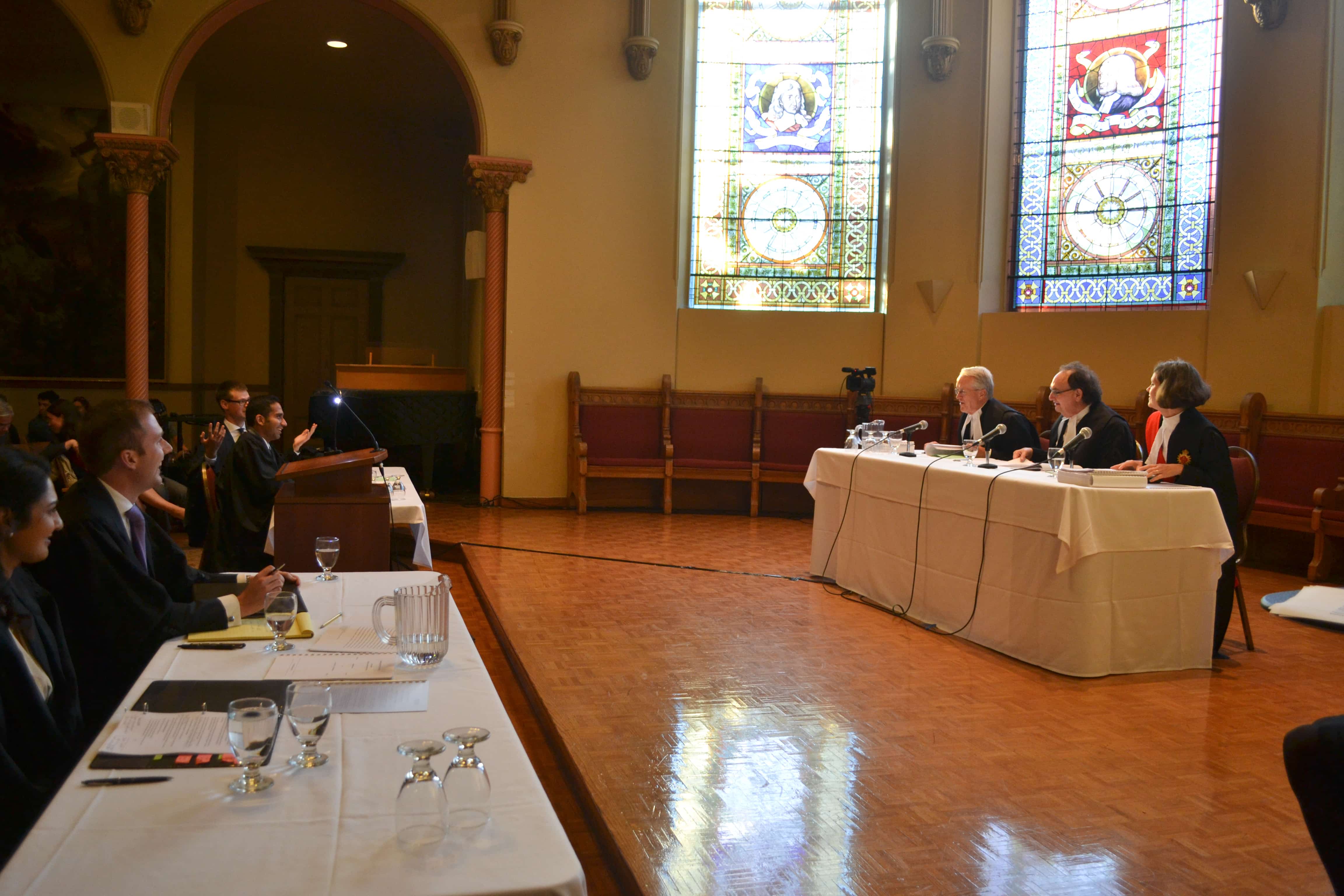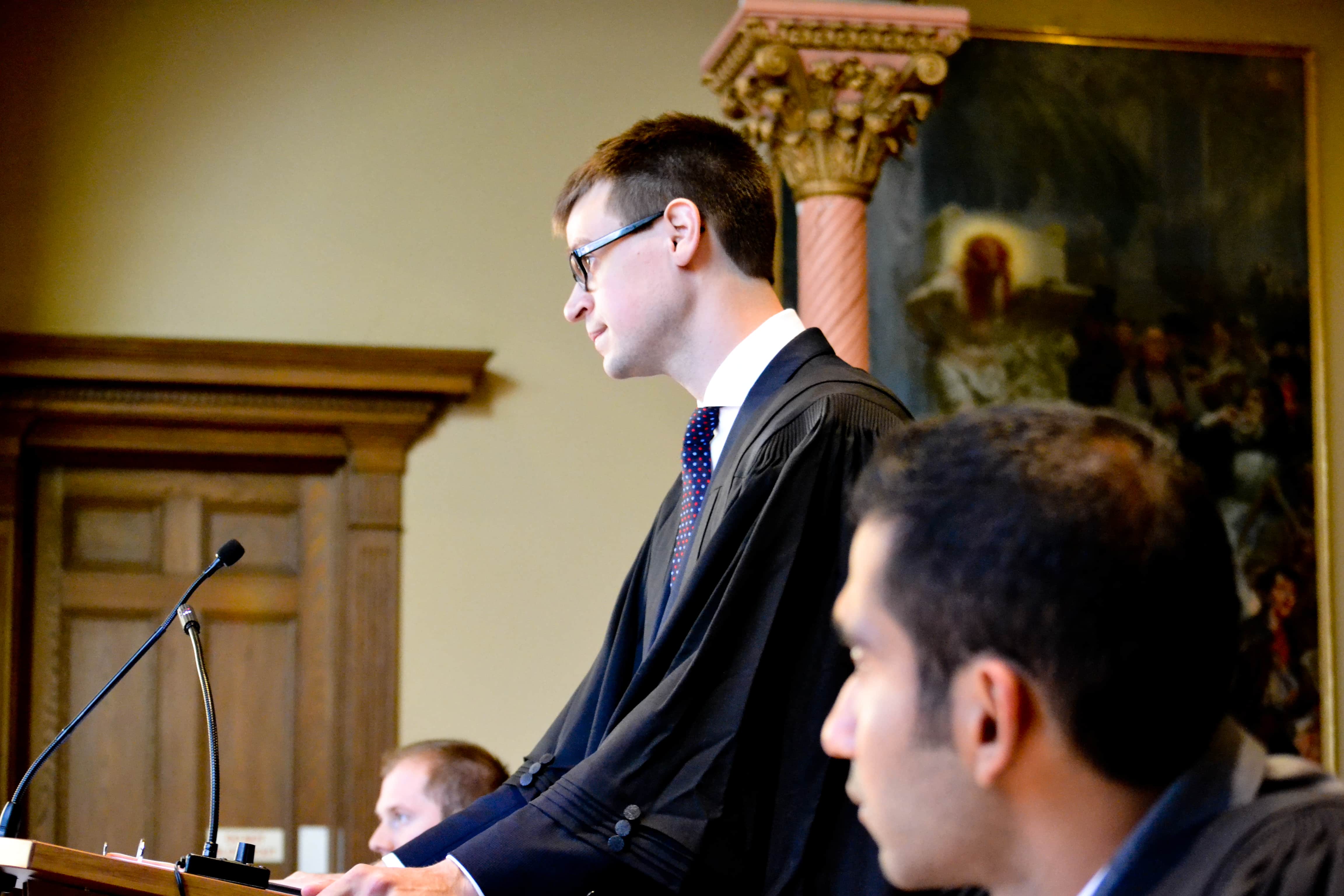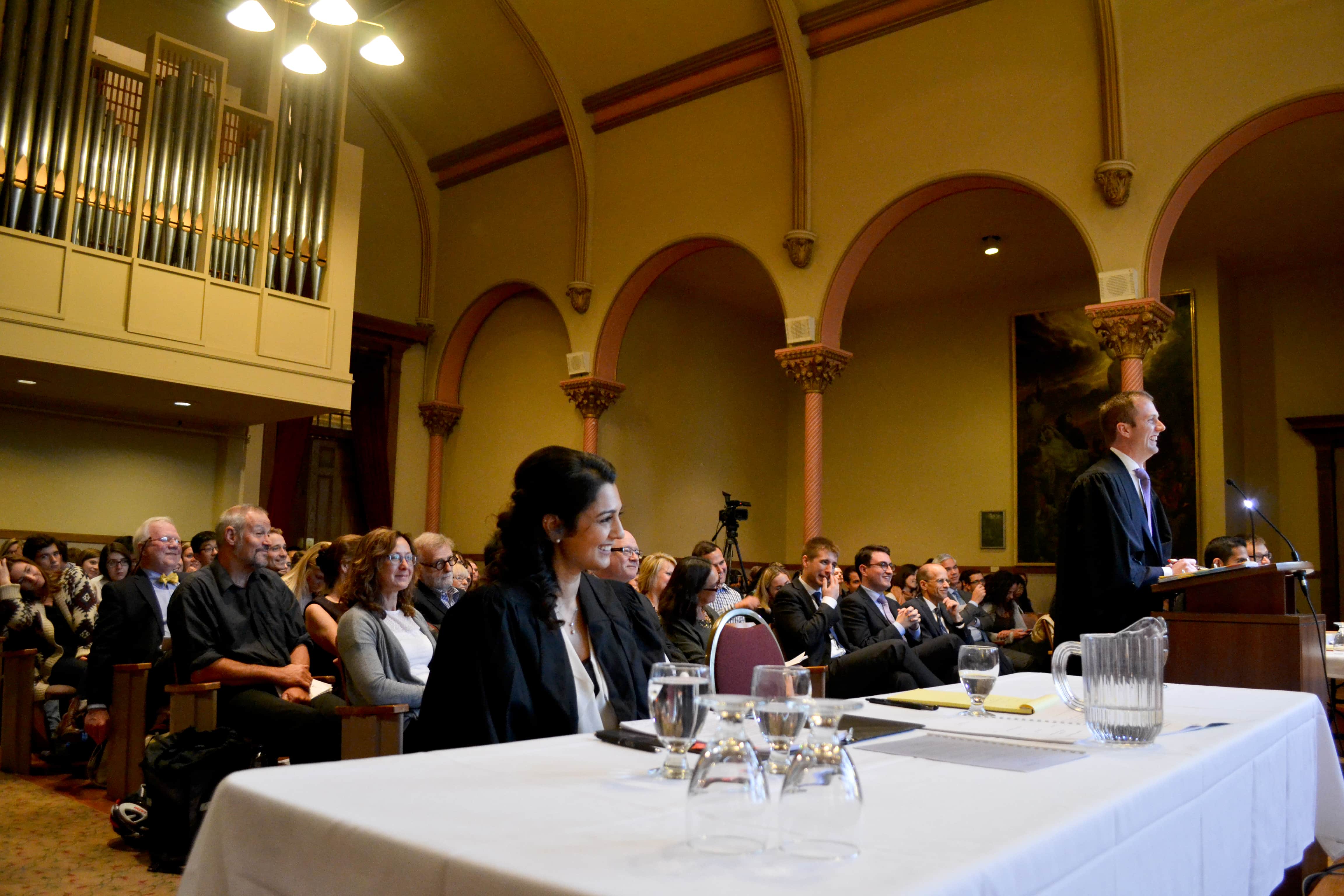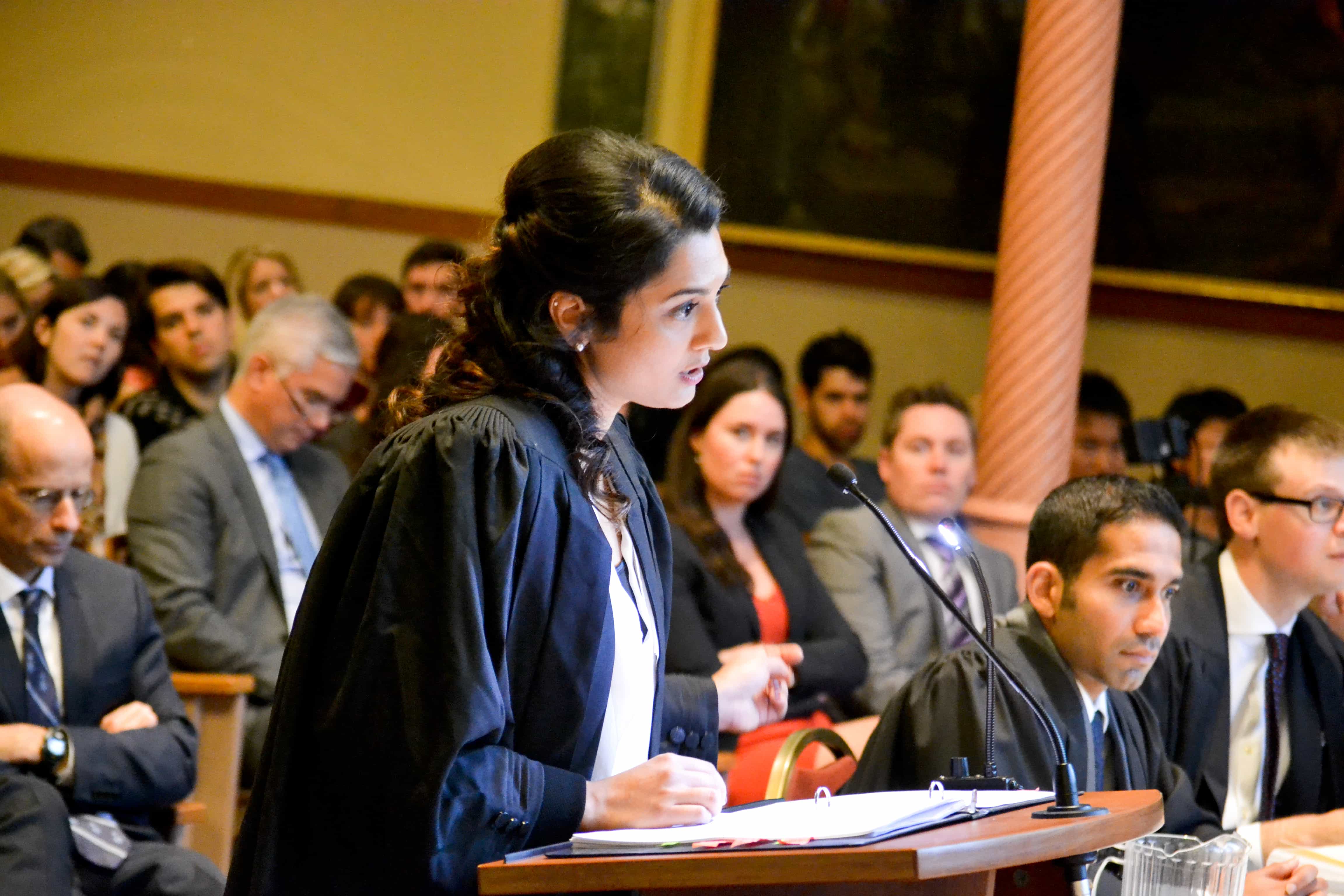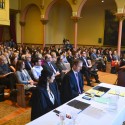Katya Popoff (2L) | Photographs by Rona Ghanbari (2L)
The focus of this year’s Grand Moot, the Faculty’s annual student-organised show moot, was the nation of Flavelle’s new “Right to be Forgotten” legislation. The problem was inspired by the European Court of Justice’s 2014 decision that search engines must comply with requests to remove links from search results for a person’s a name that are “inadequate, irrelevant or no longer relevant.”
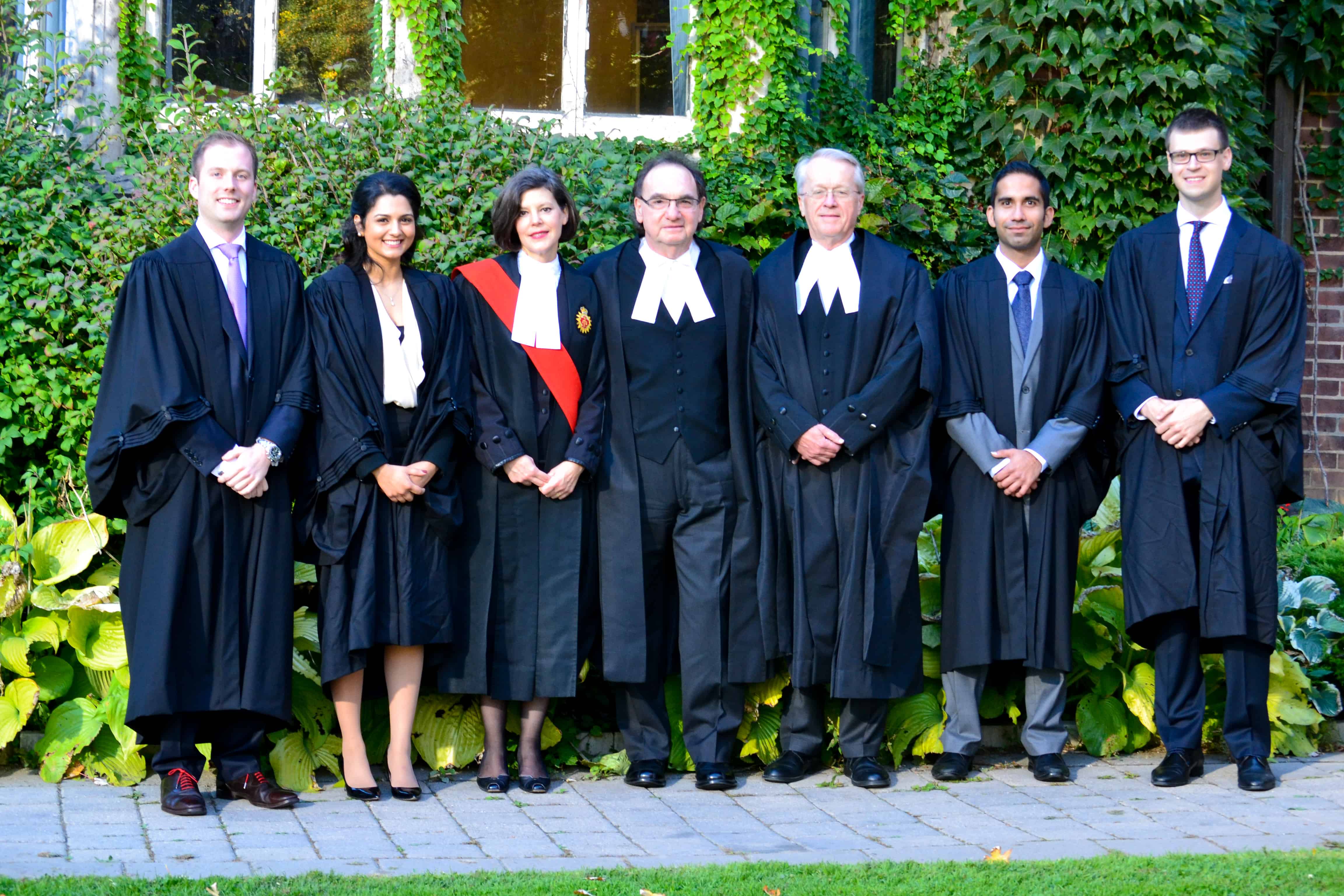
Veenu Goswami (2L) and Joe Bricker (3L) represented the Appellant, Boondoggle Inc., the world’s largest and most profitable search engine. Boondoggle brought a constitutional challenge to Flavelle’s Improving Search Results and Protecting Your Internet Legacy Act.
Under the Act, any Flavellian can make an application to the Privacy Commissioner of Flavelle requesting that certain links be removed from search results displayed in response to queries for his or her name. The Privacy Commissioner may issue an order requiring that search engines remove the impugned links if the “adverse effects on the individual resulting from the ongoing public connection between his or her name and the information linked to by the Search Results” outweigh the public interest in ongoing access to the search results.
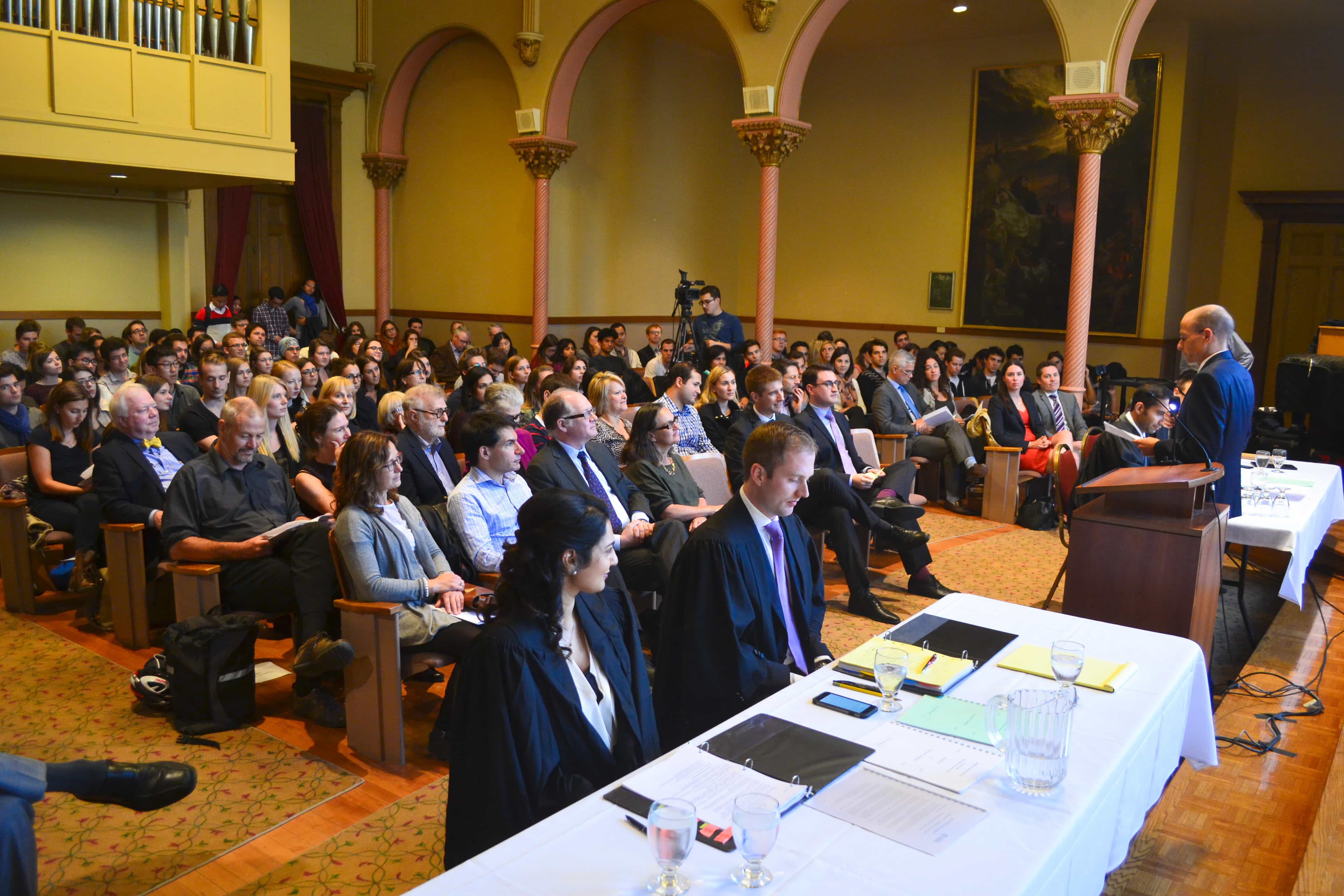
The applicant in this case was Brettly Greenberg, a lawyer and former politician, who was charged with fraud in connection with misappropriating several hundred thousand dollars from a client’s trust fund. The allegations proved to be baseless and the Crown later withdrew all charges. However, this was not reflected in the search results for “Brettly Greenberg,” which continued to be dominated by stories about the allegations, with few mentions of the withdrawal of the charges. Brettly Greenberg successfully applied to have stories about the allegations removed from search results for his name.
Boondoggle argued that the Act infringes its section 2(b) Charter right to freedom of expression and cannot be upheld as a reasonable limit under section 1. The gist of their argument was that truth (even if incomplete) is always in the public interest, and that administrative decision-makers are simply not equipped to adjudicate this kind of dispute between freedom of expression and privacy.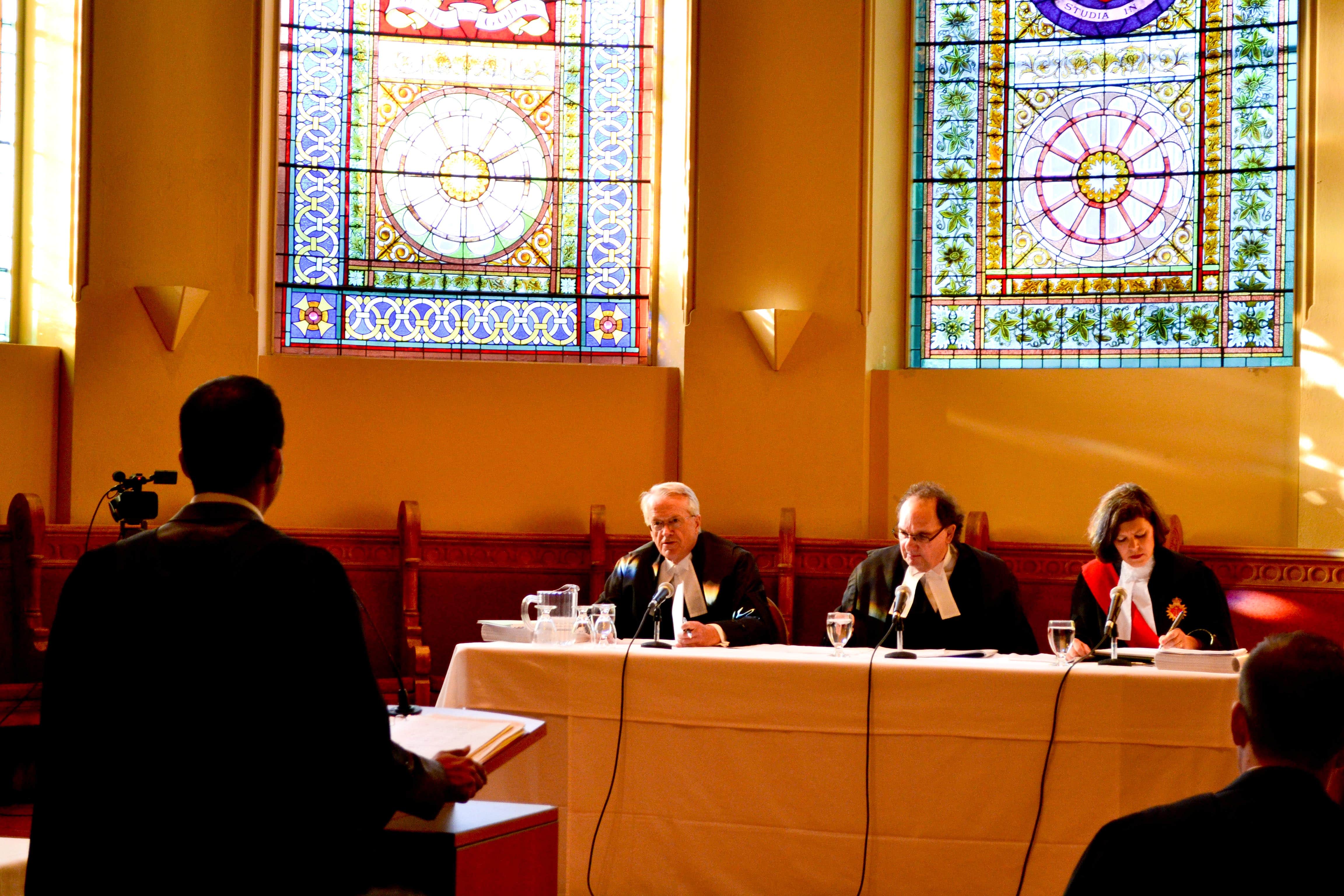
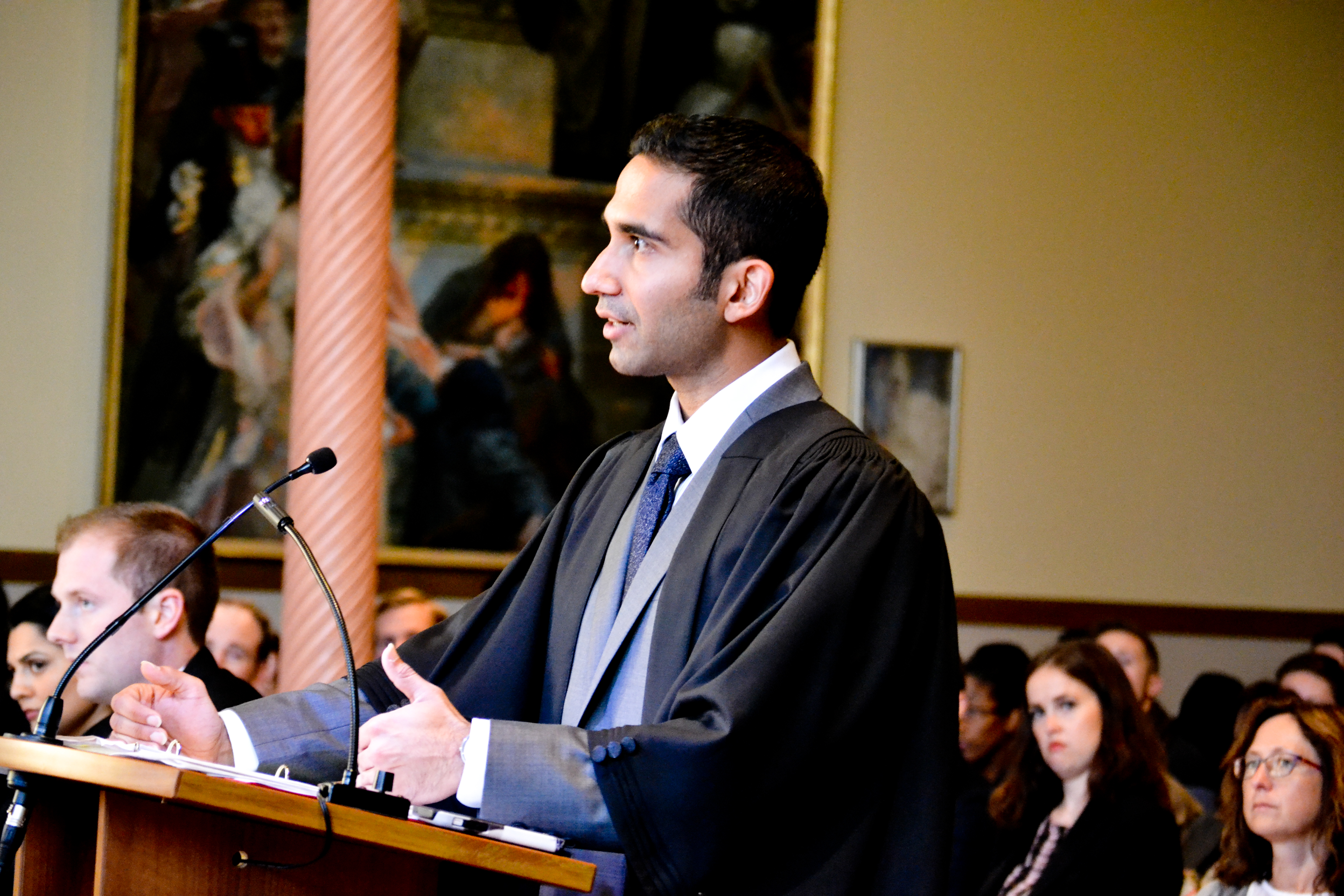 Dave Marshall (3L) and Hana Dhanji (3L) represented the Respondent, the Privacy Commissioner of Flavelle. They argued that the Act does not infringe freedom of expression under section 2(b) because of “how the electronic sausage is made.” Search results, representing an almost infinite amount of algorithmically generated content that is not even known to the search engine creators, do not warrant protection under s. 2(b). The Respondent argued, in the alternative, that the Act should be saved under section 1, as its protection of privacy and reputation outweighed the freedom of expression interests at play.
Dave Marshall (3L) and Hana Dhanji (3L) represented the Respondent, the Privacy Commissioner of Flavelle. They argued that the Act does not infringe freedom of expression under section 2(b) because of “how the electronic sausage is made.” Search results, representing an almost infinite amount of algorithmically generated content that is not even known to the search engine creators, do not warrant protection under s. 2(b). The Respondent argued, in the alternative, that the Act should be saved under section 1, as its protection of privacy and reputation outweighed the freedom of expression interests at play.
The Grand Moot was judged by a panel comprised of Justice Michael Moldaver of the Supreme Court of Canada, Justice Robert Sharpe of the Court of Appeal for Ontario, and Justice Julie Thorburn of the Ontario Superior Court of Justice.
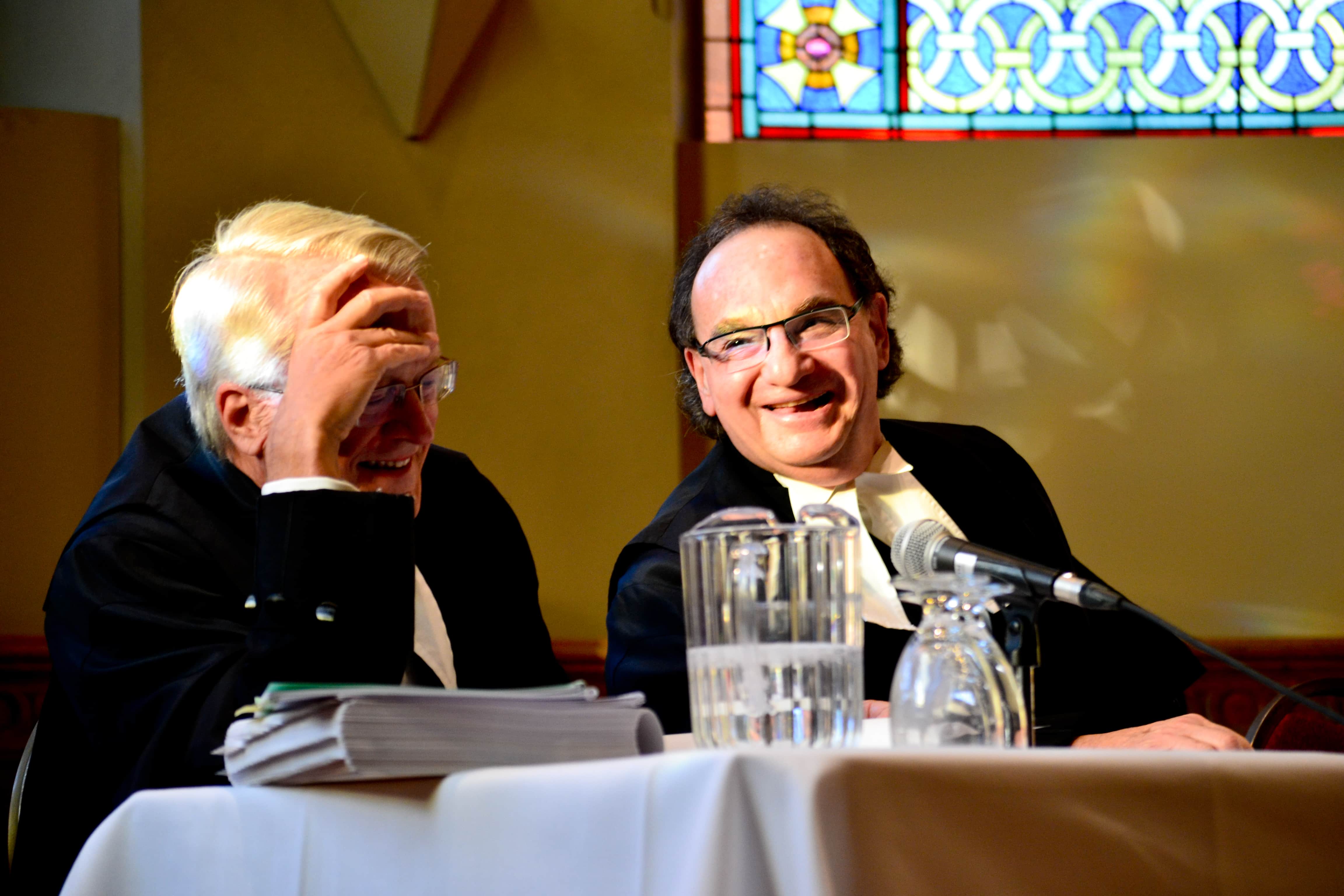 As is tradition, the judges reserved judgment—presumably we were all winners for having witnessed such fine advocacy—and commended the mooters for their preparation, engagement, and success in mastering a difficult problem.
As is tradition, the judges reserved judgment—presumably we were all winners for having witnessed such fine advocacy—and commended the mooters for their preparation, engagement, and success in mastering a difficult problem.
Brett Hughes (3L) and Sam Greene (3L) were this year’s student organisers. Greene reflected on the moot: “I thought that all four of the mooters knocked it out of the park. […] It takes an extraordinary amount of effort to attain the level of mastery the mooters displayed.” He also mentioned the judges’ contributions:
It goes without saying that all three are highly distinguished, deeply intelligent jurists. The questions they asked were tremendously insightful. But the most fun part was the banter. Being able to roll with the punches and knowing when to laugh or joke are critically important advocacy skills, and the way the judges approached their questioning allowed the mooters to show off those skills in spades.
With the completion of the Grand Moot, many U of T Law students are now starting to prepare for competitive mooting next semester, an activity that was recently the subject of an article in Macleans magazine. 